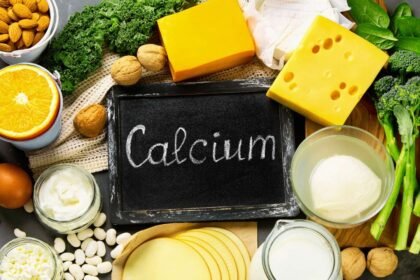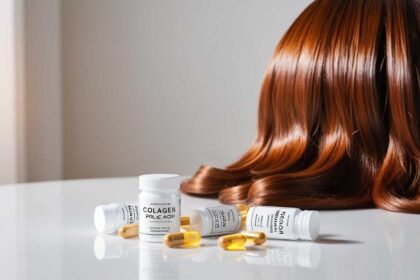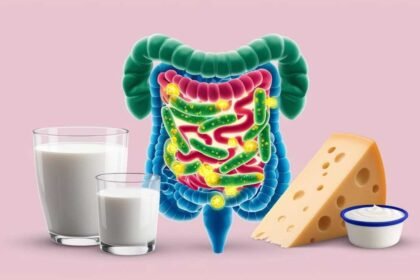Herbal and dietary supplements (HDS) have been talked about for a long time as possibly being good for your health. More and more study, though, shows a worrying link between some popular plants and liver damage.
This shows that consumers need to be more careful and that regulators need to keep a closer eye on things.
Two new studies show how common it is to use hepatotoxic plants in the US and the health risks they might cause.
Prevalence of Potentially Hepatotoxic Botanicals
A study in the JAMA Network says that about 15 million people in the U.S. regularly take supplements that contain plants that may be bad for your liver.
To name six, turmeric, green tea, ashwagandha, Garcinia cambogia, red yeast rice, and black cohosh are often linked to this issue.
People often take these supplements without prescriptions or medical advice because they are easy to find online and in stores that aren’t controlled.
The National Health and Nutrition Examination Survey (NHANES) shows that these vitamins are used by a lot of people.
4.7% of the 9,685 people polled said they had used at least one of these plants in the last 30 days. It’s worth mentioning that turmeric was used the most, followed by green tea and ashwagandha.
People over the age of 40, with more schooling, and who often have long-term health problems like arthritis make up the typical consumer profile.
Unregulated Market and Mislabeling Concerns
One of the biggest problems with herbal pills is that they are not regulated by any government agencies.
These goods are not tested as carefully for safety, effectiveness, or ingredient accuracy as prescription drugs are.
Hepatologist Robert Fontana co-authored a study that found that almost half of herbal supplements did not have the chemicals that were listed on the labels. This makes people very worried about their safety and authenticity.
People often think that because these goods come from nature, they are safe. Researchers and clinicians are working to dispel this myth.
Because the market isn’t controlled, buyers can’t be sure if the information on product labels is accurate. This is a scary fact for people who depend on these supplements for their health.
Health Risks
The liver is an important organ that cleans the body, breaks down drugs, and processes nutrients. When the liver is damaged, bad things can happen, and sometimes a donation is needed.
An alarming rise in drug-induced liver injuries (DILI) linked to herbal remedies has been found in studies. In the US, these cases rose from 7% in 2005 to 20% in 2014.
A different study from 2022 found that between 2010 and 2020, supplements caused 70% more liver damage, which led to more liver transplants.
The results show that supplements that aren’t regulated are becoming a bigger problem for public health services.
Reasons for Use: Health Maintenance and Wellness
People often buy plants like turmeric and green tea because they are said to be good for your health and help with things like digestion, reducing inflammation, and general wellness.
The lack of standard doses and the chance of contamination with harmful substances, on the other hand, can cancel out these benefits.
It’s interesting that the NHANES data show similarities between the number of people who take hepatotoxic supplements and those who are given common drugs like simvastatin and nonsteroidal anti-inflammatory drugs (NSAIDs).
This comparison shows how big the problem is and how important it is for customers to make smart decisions.
Calls for Action
Both researchers and clinicians advocate for increased regulatory oversight to ensure the safety and efficacy of herbal supplements. Recommendations include:
- Enhanced Regulation: Government authorities are urged to enforce stricter guidelines for the production, marketing, and testing of botanical products. This would help eliminate mislabeling and ensure that consumers receive products that match their stated ingredients.
- Education and Awareness: Healthcare providers are encouraged to obtain detailed histories of patients’ supplement use, especially when evaluating liver-related health issues. Educating the public about the risks associated with unregulated products is equally crucial.
- Improved Monitoring: The establishment of a centralized database for reporting adverse effects related to supplement use could provide valuable insights for researchers and policymakers.
Balancing Benefits and Risks
A lot of people say that herbal supplements make their lives better, but the growing proof of hepatotoxicity can’t be ignored.
Turmeric and green tea are well-known for their anti-inflammatory and antioxidant benefits, but they should be used with care.
Clinicians are very important when it comes to leading patients toward safe behaviors, like choosing trusted brands and taking the right amount of medicine.
Additionally, people who already have health problems or are taking other medicines should talk to their doctors before adding supplements to their routine.
This is especially important because plants and prescription drugs can sometimes mix with each other.
The Path Forward
The results of these studies shed light on a serious public health problem: people who use possibly liver-damaging plants without thinking about it.
As the use of herbal remedies grows, it becomes more important to take all-around steps to protect people’s health.
For customers, making smart choices is important. The main goal for lawmakers and healthcare providers should be to make the market for dietary supplements safer and more open.
We can make sure that the goal of wellness doesn’t come at the cost of liver health by facing these problems head-on.












